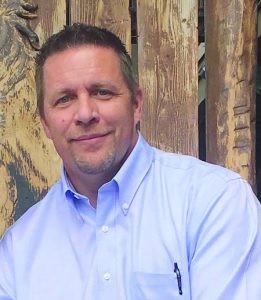By Jeff Hough
A problem with America’s workforce began on Nov. 10, 1969. It began by introducing the world to a cast of characters that would become cultural icons. It began by trying to harness the power of television for the greater good. It began on “Sesame Street.”
Initially, “Sesame Street” wanted to prepare children to go to school. The early shows focused on teaching kids basic things. Yet, as time passed, the show began to change focus. Soon, things like diversity, relationships and emotions became focal points.
These new lessons engendered a shift in the thinking of America’s children. The lessons were good and planted seeds of change that blossomed decades later. These changes produced many unintended consequences we feel today.
Before “Sesame Street,” children were seen and not heard. Uniformity and discipline were the norm and schools had corporal punishment. As the audience for “Sesame Street” grew up, so did the life lessons and philosophies of the show. By tackling issues like marriage and death, children were introduced to a kinder gentler way.
As these children became adults, their attitudes toward parenting shifted. Soon, kids went from not being heard to having a voice. Kids became more independent. The ’80s brought the latchkey phenomenon and newfound financial wealth and opportunity.
As parents, the latchkey kids had attitudes and resources that the previous generations lacked. Societal norms and family attitudes shifted, changing parenting styles. Parents began providing their children with opportunities and resources that were previously unavailable.
An old African Proverb says it takes a village to raise a child. This took on new meaning with the publishing of Hillary Clinton’s 1996 book of the same title. She gave voice to shifting attitudes towards parenting and raising children.
As a whole, society began pushing responsibility for raising children onto the village. Villagers, like Sesame Street, the educational system, and extra-curricular activities became the new nucleus. The problem was that no one assumed responsibility for raising the children. Which brings us to today.
Employers everywhere bemoan the lack of skills in today’s generation. They have no work ethic, have an entitlement mentality and lack social skills. Businesses also have trouble getting the millennials to stick around for more than a couple of years.
Historically, business focused on maximizing shareholder wealth. This created an atmosphere of fierce competition in which employees are disposable assets. Protected millennials thrust into this environment flounder. There are no safe spaces in the office. For millennials seeking to make a difference, the workplace is not kind.
The time has come for corporations to change their focus from profits to people. Recently, companies like Airbnb, Boston Consulting, and Power Home Remodeling have been recognized as great places to work. They are credited with having a great work environment and a culture that values people.
To help raise the workforce, the next evolutionary step for business is to become a responsible villager. Providing training on the basic essentials of living is a good place to start. Essential components should include developing relationships and understanding the growth process.
In our instant-gratification world, the time has come to teach patience in the process. People don’t understand that greatness takes time. High flyers are the exception, not the rule. Everyone can achieve what they want, if they subscribe to the long-haul process.
While we can’t expect businesses to take accountability for raising children, they can assume responsibility for nurturing a workforce. Training leaders to be better mentors and teachers would go a long way toward protecting the future.
Jeff Hough is a business author, blogger and speaker in Pocatello.



